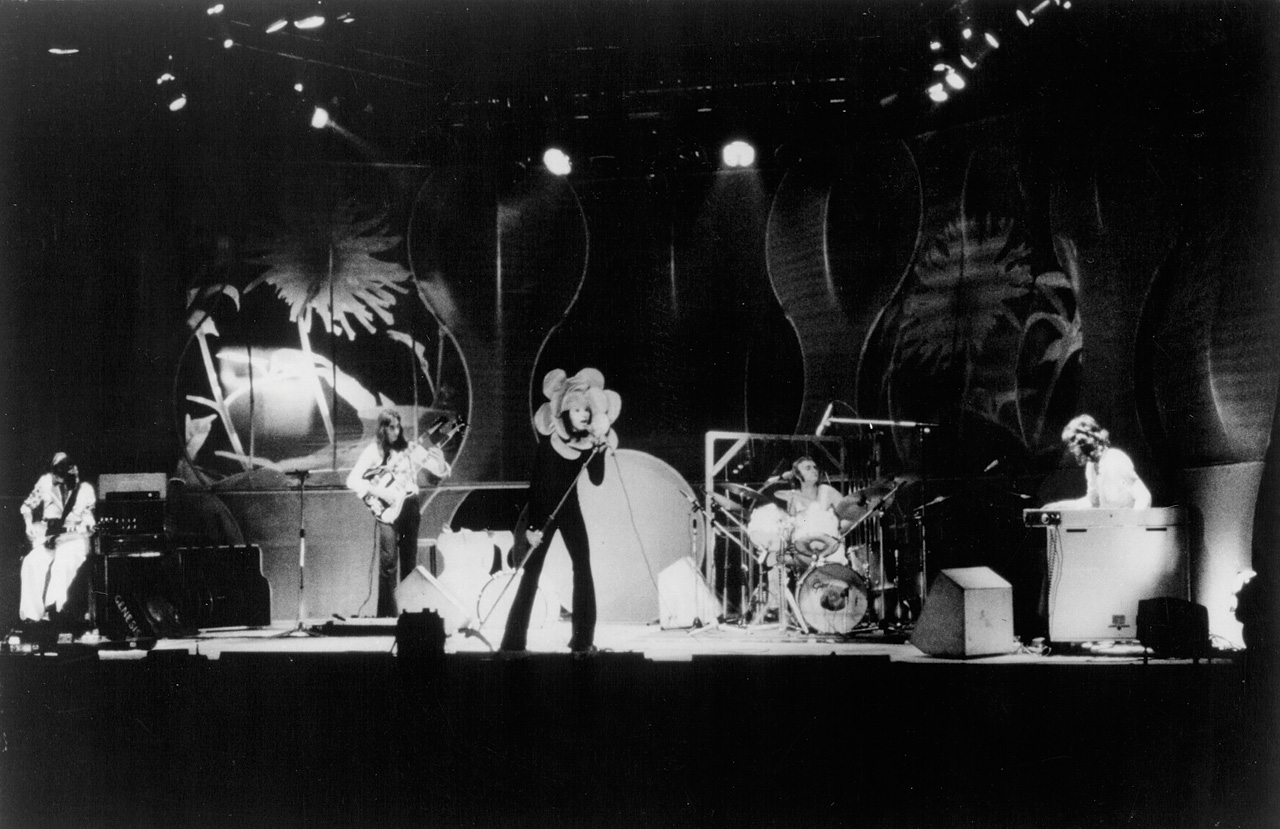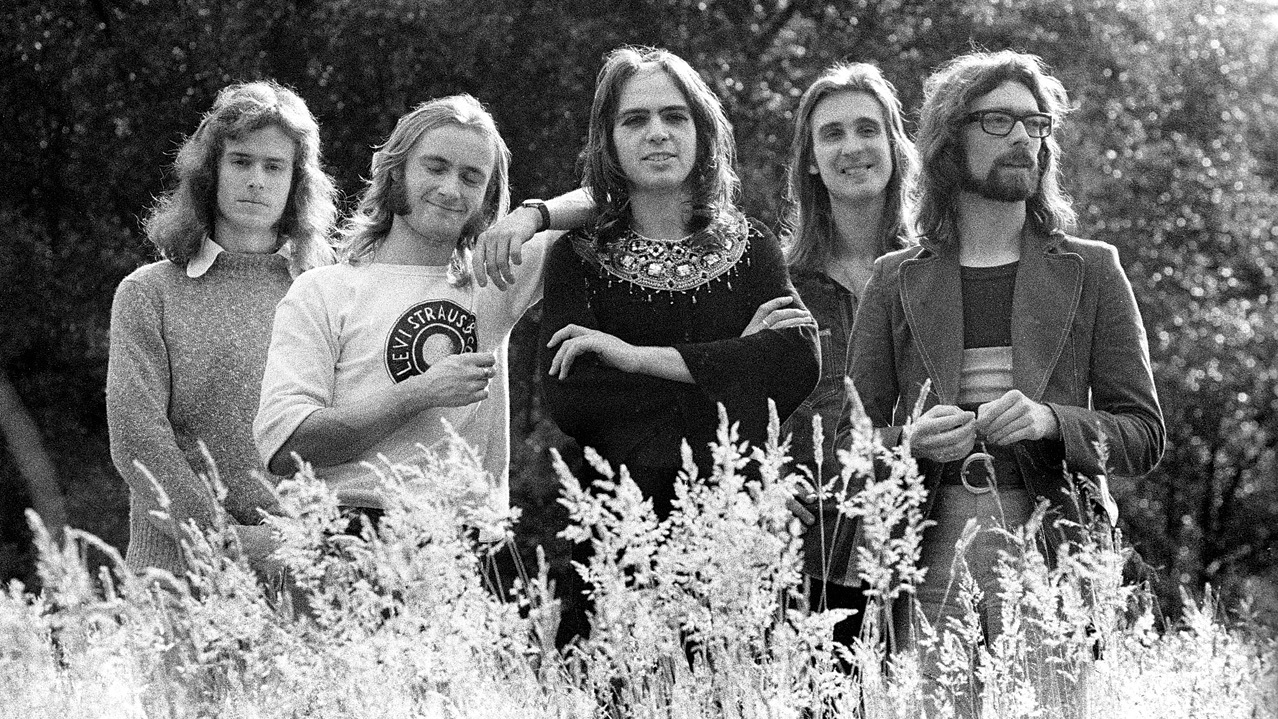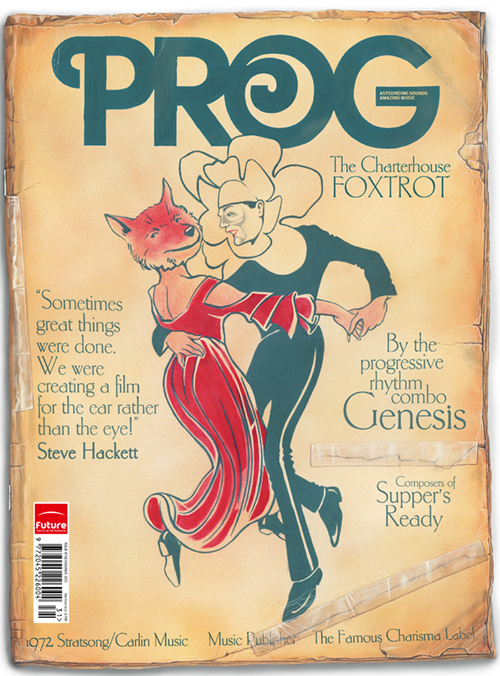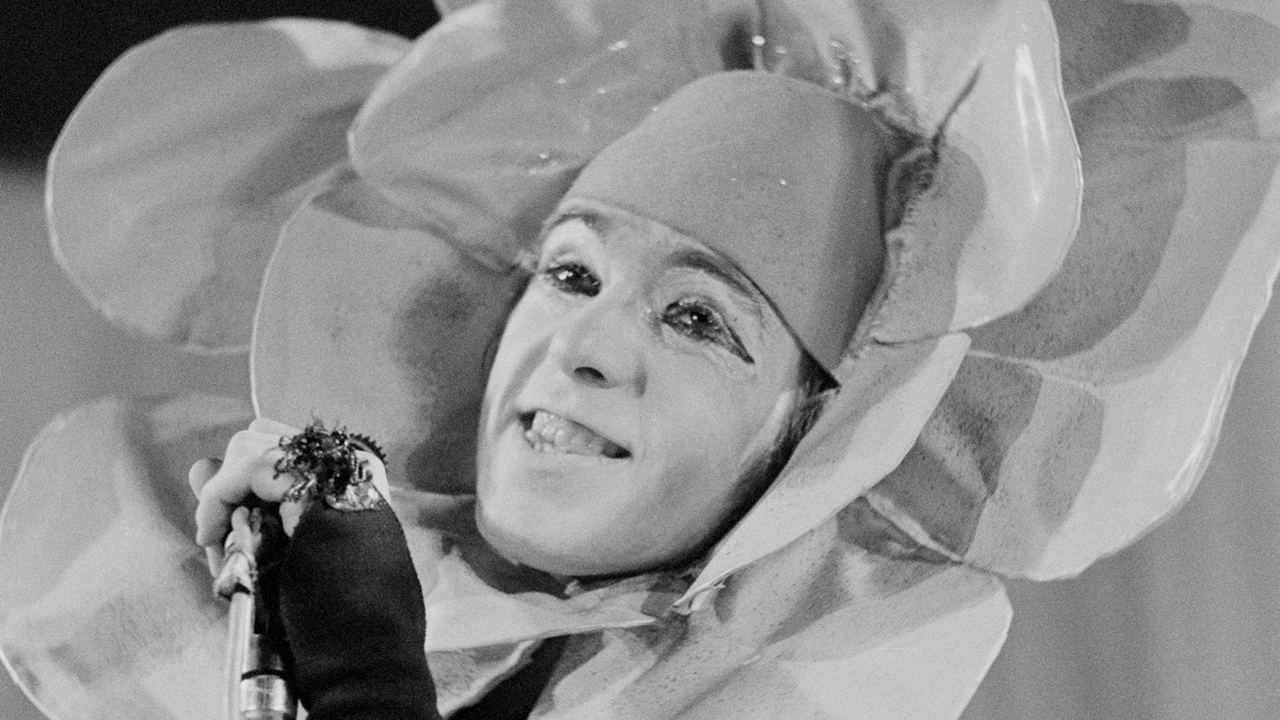Of all the ambitious and boundary-pushing work Genesis delivered since their formation in 1967, Supper’s Ready arguably stands head and shoulders above the rest. In fact, Prog readers voted it the greatest prog anthem of all time in 2017. Five years earlier, we looked into the construction of the 23-minute track from 1972’s Foxtrot.
‘The frog was a prince, the prince was a brick, the brick was an egg – and the egg was a bird. Hadn’t you heard?’ Decades on from the creation of Supper’s Ready, you probably have heard this invaluable information. You’ve heard the 23 minutes and seven sections of the definitive Genesis track and been transported by its breathtaking ambition. Its carefully cohesive meanderings lash together symphonic rock, heartbreaking melodies, surrealist lyrics and sky-high drama to build ‘new Jerusalem.’
Those involved were trying to conjure up previously-unheard music, while taking detours to rifle through the Book of Revelation and pay visits to Lover’s Leap and Willow Farm. Oh, and to soundtrack an apocalypse…in 9/8 time. “We wanted to go further,” says Tony Banks. “We’d all been wanting to push away from the regular structures.” With a very English, very Genesis reserve, he adds, “It turned out better than we’d thought.”
Foxtrot, the fourth Genesis studio album and the second with the classic line-up of Peter Gabriel, Mike Rutherford, Phil Collins, Steve Hackett and Banks, was where that ensemble fully coalesced and realised how far they could go. “It was about creating a film for the ear rather than the eye,” says Hackett.
Banks adds: “We felt that we were underway; that we were heading somewhere different. Foxtrot was where we started, in my opinion, to become significant.” As the song goes: ‘We’ve got everything; we’re growing everything.’
While the album sounds like a meticulously confident execution of a master plan, it actually came to be in a loose, relatively rushed manner. The band’s touring schedule was exhausting. Hackett recalls that, whereas with the band’s previous record, Nursery Cryme, they’d taken the summer to bond as a group while writing and recording together, for this one they were darting in and out of the studio. “I remember flying back from Italy to be there a day or two ahead of the others, who were travelling by road, just to finish off my guitar parts over the end of Supper’s Ready.”
Various locations were used for rehearsals but the bulk of the piece was crafted – prior to the absent Gabriel adding the words later – in, of all places, the Una Billings School Of Dance in Shepherds Bush. “We were below this dance studio, in a former refectory, with a counter and a gobstopper machine. There were girls upstairs learning their tap dance and what have you. The sound of those rhythms would come down through the ceiling,” Hackett says. “It was all a bit strange, and the atmosphere influenced our subsequent efforts. You couldn’t be too serious for long, because you’d hear them with this: clumpety clump clump. We’d break into smiles.”
While Foxtrot is more than just a series of aperitifs leading up to the main course – there’s social comment and sci-fi along the way – it’s indisputably the old Side Two which steals the show. Hackett’s instrumental Horizons is, in his words, “an hors d’oeuvre; an introduction,” and then it begins. The ascent of Everest. Even the sometimes lukewarm Gabriel remains a loyal fan of the work.
“It does feel like we captured some emotion there, particularly at the climax,” he says. “For my part, it was influenced by John Bunyan’s The Pilgrim’s Progress – as, later, was The Lamb Lies Down On Broadway. It was that idea of a journey. Also we were trying, consciously, to break out of tradition. We were tossing together different ideas and influences to see if there was a fresh way of putting them all together. I still enjoy it now; I’m still attracted to it.” Indeed, he counter-intuitively considered performing it live a few years ago, but admits, laughing, that it proved incredibly tough for his band to learn. “We didn’t get far. There was some resistance – it’s not easy!”
We’d say: why have you got to go verse-chorus-verse-chorus, etcetera? That was fine for some, but it’s nice if you can go somewhere else
Tony Banks
This uneasy listening embraces short sweet pastoral songs, longer more savage cuts, trembling dreamscapes and jolting blasts of reality. Gabriel sings – though it’s more than singing; it’s also a delivery, an acting performance – of good versus evil, love, religion, Winston Churchill dressed in drag, firemen, farmers and even the link between walking across the room to turn the TV off and the Antichrist. And then of course there’s a flower. (A flower?) Genesis’ only side-long song cycle isn’t afraid to lull you into a cosy sense of security then jump out from behind the curtain. Rutherford has mused: “Supper’s Ready was a great moment… of luck. Because, sometimes, you don’t quite know what you are doing.”
So what were they doing? “We were not one of those boring bands that went diddly-diddly-diddly on the guitar,” Collins says, suggesting – as the members of Genesis often do – that if they were prog, they were not at the noodling, indulgent end of the spectrum.
“We did not do that!” Rutherford says similarly. “Some of the progressive bands were more about musicianship, but even though we did long numbers, they were very much song-driven. That’s the key to longevity.”

Banks also “never liked being lumped in with anybody. We felt a slightly different ethos. King Crimson, Yes and ELP were selling technical proficiency a little more than us. Technique got displayed in the early 70s, but it was never our motivation.”
Hackett suggests that one of their unique selling points was what he calls “lead chords,” explaining: “Genesis constructed melodies from chords. We’d have that ‘swirly-cloudy’ feel – that impressionistic feel characterises much of Foxtrot, where you’re not entirely certain what you’re listening to.”
Banks recalls that they’d debate the very “rules’ of music. “We’d say: why have you got to go verse-chorus-verse-chorus, etcetera? That was fine for some, but it’s nice if you can go somewhere else. And you can tell more of a story that way, without the repetition.”
He says the band initially thought they were writing “a kind of follow-up to The Musical Box from Nursery Cryme.” It was coming along well; but there was also “this ‘pretty-pretty’ song called Willow Farm, all on its own, and we thought, ‘What if we suddenly went from there into this ugly descending-chords sequence?’ Nobody would be expecting it. That then brought in all the louder electric instruments, and once we got into that… well, we were there now, so let’s carry on! See where that leads us. When we put the whole thing together and heard it back for the first time, we went, ‘Oh, this is actually pretty good!’”
Bands just weren’t creating pieces of music like that. I think it was then the longest piece that any rock band had ever played live
Steve Hackett
If there’s one man more prone to English restraint than Banks, it’s Rutherford. “That end section happened effortlessly, as good music often does. The act of doing Supper’s Ready seemed quite easy. If things take too long, it’s a bad sign. When Pete put that ‘666’ vocal over that passage, it felt a bit special. The voice going over that strong instrumental wasn’t how you’d imagined it at all – the game got raised.”
Needless to say, quietly competitive school friends Gabriel and Banks took time to accept that they were on the same page in this brewing book of revelations. Banks had most of the Apocalypse In 9/8 section down as keyboard solos. “But then Peter started singing over them, because his lyrics required more information to get out. Initially, I have to say, I was pissed off,” he says with a laugh. “‘You’re singing on my bit!’ Then I realised it now had all the excitement we’d been hoping to create. Especially the ‘666’ bit. There’s a lot of drama in the chords themselves, but then what he did on top just took it to another level.” He makes a very specific call, with which many long-term Genesis fans would agree: “That half-minute or so is probably our peak.”
Gabriel’s lyrics are a splendour of the fantastical and the intimate. He’s described them as being both a “personal journey walking through scenes in the Book Of Revelation” and inspired by nightmares his wife had. (A line in the Bible reference mentions “the supper of the mighty one.”) Gabriel was a fan of King Crimson lyricist Peter Sinfield, and perceived in his work an intriguing blend of British eccentricity and raging psychedelic visions. At the time of Foxtrot’s release, the singer agreed that there was an element of escapism – but denied it was anything to do with drug culture.

“I don’t think drug-induced states are valuable,” he said, while allowing that he was no stranger to mental anguish. “One of the great troubles with the mind is that it’s always lost between two extremes,” he continued. “That’s partly what Willow Farm is about. Wherever you are and whatever you do, there’s always a left and right, an up and down, a good and bad.”
Sombre as that sounds, and as gloriously melodramatic and occasionally macabre as much of Supper’s Ready is, there is lots of leavening humour to keep the journey palatable and unpredictable. The scene where Narcissus is turned into a flower (OK, you can do the response here if you like) takes its title How Dare I Be So Beautiful? from a catchphrase of the band’s erstwhile, not-then-discredited mentor, Jonathan King. In Willow Farm, there are flavours of Monty Python and The Flowerpot Men, and Gabriel’s onstage, in-character storytelling tendencies run riot throughout. You can, of course, take the young man’s purple verbiage as seriously or as lightly as you wish, but as effective as those “lead chords” are, his vocals are our indispensable guide, our narrator, our beacon to the far shore. ‘We will rock you, rock you, little snake/ We will keep you snug and warm.’
All these years on, Supper’s Ready has survived the slings and arrows of fashion and stands as the matchless, majestic monolith of prog. Every progressive band worth their salt since, from Marillion to Big Big Train and many more in between, have used it as a touchstone. Hackett recalls that Genesis did in fact think of it as “futuristic” in ’72.

“I can’t remember whose idea it was, but we came to the conclusion that you could join any two bits of music together, no matter how disparate the styles, provided the bridge or atmospheric link was strong enough,” he says, laying out one of the definitions of prog. “It creates for the listener an adventure, an odyssey. You’ve got the stuff of concertos and symphonies, which nod to the past, but it was also futuristic at that point. Bands just weren’t creating pieces of music like that. I think it was then the longest piece that any rock band had ever played live.”
Collins also retains his enthusiasm for the song. “Supper’s Ready was great!” he says. “The music and imagery worked so strongly together. And then on stage the visuals boosted it too.” So fond of it was Collins that you can hear him subtly quote the lyrics – ‘There’s an angel standing in the sun’ – on the fade-out of Los Endos, the closing track on A Trick Of The Tail, his debut album as the band’s vocalist after Gabriel’s departure. He also sang Supper’s Ready beautifully on live album Seconds Out.)
Audiences at first were equal parts bewildered and exhilarated by the composition. “We’d gone out on a limb,” remembers Hackett. “It was labyrinthine. It was like when The Beatles released Sgt. Pepper’s Lonely Hearts Club Band and then they worried whether they’d gone too far and might get the thumbs-down. Except we didn’t have their number of fans!”
“In the early 1970s we were lucky. The Beatles had started to go a bit further, then pulled themselves back. But they’d opened a door,” says Banks. “We – and Pink Floyd, King Crimson, and others – all thought: ‘We can do what we like now!’”
“Sometimes,” ponders Hackett, “you get a great crystallisation. You may not fully recognise it at the time – as musicians you may still be searching. But the audience, the true owners, will see it as a Mona Lisa. They’ll say: ‘Look no further – we’ve found it.’”


